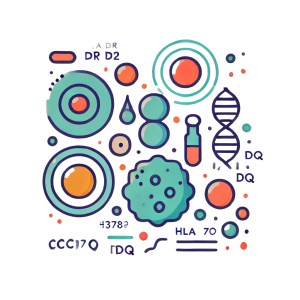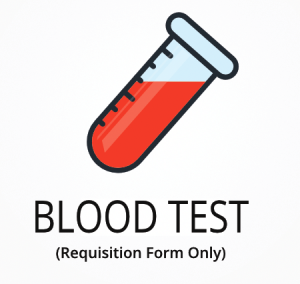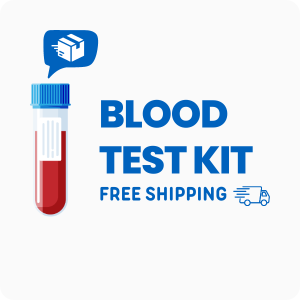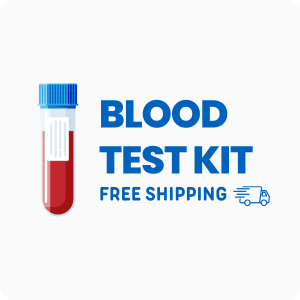 What is the Intermediate Resolution HLA DR1/3/4/5, DQ Test?
What is the Intermediate Resolution HLA DR1/3/4/5, DQ Test?
The Intermediate Resolution HLA DR1/3/4/5, DQ test helps detect specific proteins, called human leukocyte antigens (HLA), on the surface of white blood cells. These HLAs play a critical role in immune system function. An interesting fact is that the presence of certain HLA types, like HLA DR and DQ alleles, may correlate with autoimmune and inflammatory conditions. This test identifies those HLA markers, helping healthcare providers understand your immune system’s unique features.
Why is the Intermediate Resolution HLA DR1/3/4/5, DQ Test Important?
This test is valuable because certain HLA markers are associated with conditions like autoimmune diseases and immune-related disorders. Did you know that specific HLA markers, such as HLA DR4, are more commonly found in patients with rheumatoid arthritis? Understanding these associations may help predict potential health conditions and personalize treatment approaches, making this test especially insightful.
Why Consider the Intermediate Resolution HLA DR1/3/4/5, DQ Test?
Ordering this test can provide insights into how your unique HLA markers affect your immune response. For example, specific HLA DQ markers are sometimes linked with celiac disease, offering essential clues about gluten sensitivity and autoimmune risks. By understanding your HLA markers, you and your healthcare provider can explore personalized strategies for managing and monitoring relevant health concerns.
Labs Included in Your Order
| Test Name | Reference Range | Significance | Low and High Levels |
|---|---|---|---|
| HLA DRB1 |
|
This gene variant is often linked to autoimmune conditions and transplant compatibility, playing a role in immune response recognition. | High: High levels of HLA DRB1 may indicate increased immune system activity.
Low: Low levels of HLA DRB1 are rare but may signify impaired immune function. |
| HLA DRB3 |
|
DRB3 alleles contribute to immune cell differentiation and may influence susceptibility to certain autoimmune conditions. | High: High levels of HLA DRB3 are often associated with immune responsiveness.
Low: Low levels can impact immune adaptability, especially in response to infections. |
| HLA DRB4 |
|
DRB4 plays a role in identifying specific pathogens, helping the body tailor its immune response. | High: Elevated HLA DRB4 levels may suggest active immune modulation.
Low: Reduced levels may impair immune response specificity. |
| HLA DRB5 |
|
HLA DRB5 can influence immune response strength and is relevant in autoimmune disease risk assessment. | High: Higher levels indicate a potentially heightened immune reaction.
Low: Lower levels may suggest decreased immune system flexibility. |
| HLA DQB1 |
|
HLA DQB1 helps detect and respond to foreign antigens, crucial for autoimmune response regulation. | High: Elevated levels may point to increased autoimmune activity.
Low: Lower levels are unusual but could signal a reduced immune response. |
Intermediate Resolution HLA DR1/3/4/5, DQ FAQ
What is the Intermediate Resolution HLA DR1/3/4/5, DQ Test for?
This test determines specific types of HLA markers on white blood cells that are crucial for immune function. It’s commonly used to assess risks related to autoimmune conditions and compatibility for organ or tissue transplants.
What are the signs and symptoms associated with HLA markers?
Individuals with specific HLA markers may experience symptoms associated with autoimmune conditions, such as joint pain, fatigue, skin rashes, or digestive issues. These markers are often linked to diseases like rheumatoid arthritis, type 1 diabetes, or celiac disease. It is also important to consult with your primary healthcare provider if you are experiencing any of these symptoms.
How often should I retest?
HLA typing results do not typically change over time, so one test is usually sufficient unless a more detailed resolution is required for medical reasons.
How accurate is the Intermediate Resolution HLA DR1/3/4/5, DQ Test?
The test uses advanced sequencing methods, providing high accuracy in identifying your specific HLA types. This accuracy helps ensure reliable insights into immune-related conditions.
Are test results private and confidential?
Receive test results securely on TrueHealthLabs.com under ‘My Account.’ It’s critical that you share them with your physician. Results may be disclosed to health authorities only if legally mandated. Review our privacy policy for more details.
Medical Review Board
Reviewed by Jeff Donohue M.D. from Body Logic and Brady Hurst DC, CCCN. Written by True Health Lab’s team of editorial health contributors.
Disclaimer: This information is for educational purposes only and not intended as medical advice. Consult your healthcare provider for personalized guidance.
Why Customers Trust True Health Labs – What People are saying
Also rated 4.6 out of 5 based on 3452 ShopperApproved reviews- See all TrueHealthLabs.com reviews.









